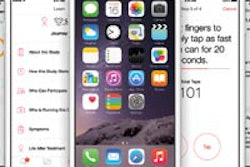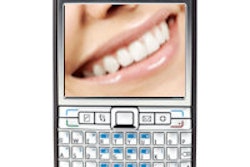The U.S. Food and Drug Administration (FDA) has issued final guidance for developers of mobile medical applications.
The agency intends to exercise enforcement discretion (meaning it will not enforce requirements under the Federal Drug & Cosmetic Act) for the majority of mobile apps as they pose minimal risk to consumers. The FDA intends to focus its regulatory oversight on a subset of mobile medical apps that present a greater risk to patients if they do not work as intended.
Mobile apps have the potential to transform healthcare by allowing doctors to diagnose patients with potentially life-threatening conditions outside of traditional health care settings, help consumers manage their own health and wellness, and also gain access to useful information whenever and wherever they need it, the agency noted in a news release.
The FDA said it will focus its oversight on the following types of mobile medical apps:
- Apps that are intended to be used as an accessory to a regulated medical device -- for example, an application that allows a healthcare professional to make a specific diagnosis by viewing a medical image from a picture archiving and communication system (PACS) on a smartphone or a mobile tablet
- Apps that transform a mobile platform into a regulated medical device -- for example, an application that turns a smartphone into an electrocardiography (ECG) machine to detect abnormal heart rhythms or determine if a patient is experiencing a heart attack
Mobile medical apps that undergo FDA review will be assessed using the same regulatory standards and risk-based approach that the agency applies to other medical devices.
The FDA does not regulate the sale or general consumer use of smartphones or tablets, nor does it regulate mobile app distributors such as the iTunes App Store or the Google Play store.
The agency has cleared about 100 mobile medical applications over the past decade; about 40 of those were cleared in the past two years.



















